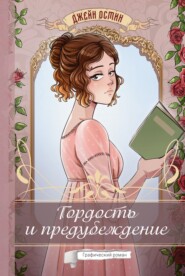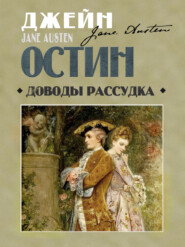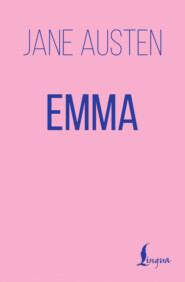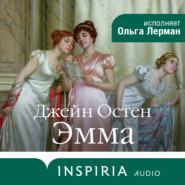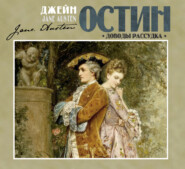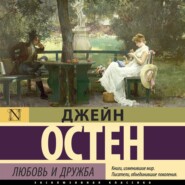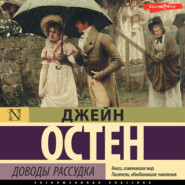По всем вопросам обращайтесь на: info@litportal.ru
(©) 2003-2025.
✖
Collins Classics
Автор
Год написания книги
2019
Настройки чтения
Размер шрифта
Высота строк
Поля
“He is a warm friend to Sanditon,” said Mr. Parker, “and his hand would be as liberal as his heart, had he the power. He would be a noble coadjutor! As it is, he does what he can and is running up a tasteful little cottage ornèe, on a strip of waste ground Lady Denham has granted him, which I have no doubt we shall have many a candidate for, before the end even of this season.”
Till within the last twelvemonth, Mr. Parker had considered Sir Edward as standing without a rival, as having the fairest chance of succeeding to the greater part of all that she had to give; but there were now another person’s claims to be taken into account, those of the young female relation whom Lady Denham had been induced to receive into her family. After having always protested against any such addition, and long and often enjoyed the repeated defeats she had given to every attempt of her relations to introduce this young lady or that young lady as a companion at Sanditon House, she had brought back with her from London last Michaelmas a Miss Brereton, who bid fair by her merits to vie in favour with Sir Edward and to secure for herself and her family that share of the accumulated property which they had certainly the best right to inherit.
Mr. Parker spoke warmly of Clara Brereton, and the interest of his story increased very much with the introduction of such a character. Charlotte listened with more than amusement now; it was solicitude and enjoyment, as she heard her described to be lovely, amiable, gentle, unassuming, conducting herself uniformly with great good sense, and evidently gaining by her innate worth on, the affections of her patroness. Beauty, sweetness, poverty and dependence do not want the imagination of a man to operate upon; with due exceptions, woman feels for woman very promptly and compassionately. He gave the particulars which had led to Clara’s admission at Sanditon as no bad exemplification of that mixture of character, that union of littleness with kindness with good sense with even liberality which he saw in Lady Denham.
After having avoided London for many years, principally on account of these very cousins who were continually writing, inviting and tormenting her, and whom she was determined to keep at a distance, she had been obliged to go there last Michaelmas with the certainty of being detained at least a fortnight. She had gone to a hotel, living by her own account as prudently as possible to defy the reputed expensiveness of such a home, and at the end of three days calling for her bill that she might judge of her state. Its amount was such as determined her on staying not another hour in the house, and she was preparing in all the anger and perturbation of her belief in very gross imposition there, and her ignorance of where to go for better usage, to leave the hotel at all hazards, when the cousins, the politic and lucky cousins, who seemed always to have a spy on her, introduced themselves at this important moment, and learning her situation, persuaded her to accept such a home for the rest of her stay as their humbler house in a very inferior part of London could offer.
She went; was delighted with her welcome and the hospitality and attention she received from everybody—found her good cousins the Breretons beyond her expectation worthy people—and finally was impelled by a personal knowledge of their narrow income and pecuniary difficulties to invite one of the girls of the family to pass the winter with her. The invitation was to one, for six months—with the probability of another being then to take her place—but in selecting the one, Lady Denham had shown the good part of her character. For, passing by the actual daughters of the house, she had chosen Clara, a niece—more helpless and more pitiable of course than any—a dependent on poverty—an additional burden on an encumbered circle—and one who had been so low in every worldly view as, with all her natural endowments and powers, to have been preparing for a situation little better than a nursery maid.
Clara had returned with her—and by her good sense and merit had now, to all appearance, secured a very strong hold in Lady Denham’s regard. The six months had long been over—and not a syllable was breathed of any change or exchange. She was a general favourite. The influence of her steady conduct and mild, gentle temper was felt by everybody. The prejudices which had met her at first, in some quarters, were all dissipated. She was felt to be worthy of trust, to be the very companion who would guide and soften Lady Denham, who would enlarge her mind and open her hand. She was as thoroughly amiable as she was lovely—and since having had the advantage of their Sanditon breezes, that loveliness was complete.
CHAPTER 4 (#ulink_7fbf2446-7ff8-50fa-9084-91cd6dc50974)
“And whose very snug-looking place is this?” said Charlotte as, in a sheltered dip within two miles of the sea, they passed close by a moderate-sized house, well fenced and planted, and rich in the garden, orchard and meadows which are the best embellishments of such a dwelling. “It seems to have as many comforts about it as Willingden.”
“Ah,” said Mr. Parker. “This is my old house, the house of my forefathers, the house where I and all my brothers and sisters were born and bred, and where my own three eldest children were born; where Mrs. Parker and I lived till within the last two years, till our new house was finished. I am glad you are pleased with it. It is an honest old place; and Hillier keeps it in very good order. I have given it up, you know, to the man who occupies the chief of my land. He gets a better house by it, and I, a rather better situation! One other hill brings us to Sanditon—modern Sanditon—a beautiful spot. Our ancestors, you know, always built in a hole. Here were we, pent down in this little contracted nook, without air or view, only one mile and three quarters from the noblest expanse of ocean between the South Foreland and Land’s End, and without the smallest advantage from it. You will not think I have made a bad exchange when we reach Trafalgar House—which by the bye, I almost wish I had not named Trafalgar—for Waterloo is more the thing now. However, Waterloo is in reserve; and if we have encouragement enough this year for a little crescent to be ventured on, as I trust we shall, then we shall be able to call it Waterloo Crescent—and the name joined to the form of the building, which always takes, will give us the command of lodgers. In a good season we should have more applications than we could attend to.”
“It was always a very comfortable house,” said Mrs. Parker, looking at it through the back window with something like the fondness of regret. “And such a nice garden such an excellent garden.”
“Yes, my love, but that we may be said to carry with us. It supplies us, as before, with all the fruit and vegetables we want. And we have, in fact, all the comfort of an excellent kitchen garden without the constant eyesore of its formalities or the yearly nuisance of its decaying vegetation. Who can endure a cabbage bed in October?”
“Oh dear, yes. We are quite as well off for garden stuff as ever we were; for if it is forgot to be brought at any time, we can always buy what we want at Sanditon House. The gardener there is glad enough to supply us. But it was a nice place for the children to run about in. So shady in summer!”
“My dear, we shall have shade enough on the hill, and more than enough in the course of a very few years. The growth of my plantations is a general astonishment. In the meanwhile we have the canvas awning which gives us the most complete comfort within doors. And you can get a parasol at Whitby’s for little Mary at any time, or a large bonnet at Jebb’s. And as for the boys, I must say I would rather them run about in the sunshine than not. I am sure we agree, my dear, in wishing our boys to be as hardy as possible.”
“Yes indeed, I am sure we do. And I will get Mary a little parasol, which will make her as proud as can be. How grave she will walk about with it and fancy herself quite a little woman. Oh, I have not the smallest doubt of our being a great deal better off where we are now. If we any of us want to bathe, we have not a quarter of a mile to go. But you know,” (still looking back), “one loves to look at an old friend at a place where one has been happy. The Hilliers did not seem to feel the storms last winter at all. I remember seeing Mrs. Hillier after one of those dreadful nights, when we had been literally rocked in our bed, and she did not seem at all aware of the wind being anything more than common.”
“Yes, yes, that’s likely enough. We have all the grandeur of the storm with less real danger because the wind, meeting with nothing to oppose or confine it around our house, simply rages and passes on; while down in this gutter, nothing is known of the state of the air below the tops of the trees; and the inhabitants may be taken totally unawares by one of those dreadful currents, which do more mischief in a valley when they do arise than an open country ever experiences in the heaviest gale. But, my dear love, as to gardenstuff, you were saying that any accidental omission is supplied in a moment by Lady Denham’s gardener. But it occurs to me that we ought to go elsewhere upon such occasions, and that old Stringer and his son have a higher claim. I encouraged him to set up, you know, and am afraid he does not do very well. That is, there has not been time enough yet. He will do very well beyond a doubt. But at first it is uphill work, and therefore we must give him what help we can. When any vegetables or fruit happen to be wanted—and it will not be amiss to have them often wanted, to have something or other forgotten most days—just to have a nominal supply, you know, that poor old Andrew may not lose his daily job—but in fact to buy the chief of our consumption from the Stringers.”
“Very well, my love, that can be easily done. And cook will be satisfied, which will be a great comfort, for she is always complaining of old Andrew now and says he never brings her what she wants. There now the old house is quite left behind. What is it your brother Sidney says about its being a hospital?”
“Oh, my dear Mary, merely a joke of his. He pretends to advise me to make a hospital of it. He pretends to laugh at my improvements. Sidney says anything, you know. He has always said what he chose, of and to us all. Most families have such a member among them, I believe, Miss Heywood. There is someone in most families privileged by superior abilities or spirits to say anything. In ours, it is Sidney, who is a very clever young man and with great powers of pleasing. He lives too much in the world to be settled; that is his only fault. He is here and there and everywhere. I wish we may get him to Sanditon. I should like to have you acquainted with him. And it would be a fine thing for the place! Such a young man as Sidney, with his neat equipage and fashionable air. You and I, Mary, know what effect it might have. Many a respectable family, many a careful mother, many a pretty daughter might it secure us to the prejudice of Eastbourne and Hastings.”
They were now approaching the church and the real village of Sanditon, which stood at the foot of the hill they were afterwards to ascend—a hill whose side was covered with the woods and enclosures of Sanditon House and whose height ended in an open down where the new buildings might soon be looked for. A branch only, of the valley, winding more obliquely towards the sea, gave a passage to an inconsiderable stream, and formed at its mouth a third habitable division in a small cluster of fishermen’s houses.
The original village contained little more than cottages; but the spirit of the day had been caught, as Mr. Parker observed with delight to Charlotte, and two or three of the best of them were smartened up with a white curtain and “Lodgings to let,” and farther on, in the little green court of an old farm house, two females in elegant white were actually to be seen with their books and camp stools; and in turning the corner of the baker’s shop, the sound of a harp might be heard through the upper casement.
Such sights and sounds were highly blissful to Mr. Parker. Not that he had any personal concern in the success of the village itself; for considering it as too remote from the beach, he had done nothing there; but it was a most valuable proof of the increasing fashion of the place altogether. If the village could attract, the hill might be nearly full. He anticipated an amazing season. At the same time last year (late in July) there had not been a single lodger in the village! Nor did he remember any during the whole summer, excepting one family of children who came from London for sea air after the whooping cough, and whose mother would not let them be nearer the shore for fear of their tumbling in.
“Civilization, civilization indeed!” cried Mr. Parker, delighted. “Look, my dear Mary, look at William Heeley’s windows. Blue shoes, and nankin boots! Who would have expected such a sight at a shoemaker’s in old Sanditon! This is new within the month. There was no blue shoe when we passed this way a month ago. Glorious indeed! Well, I think I have done something in my day. Now, for our hill, our health-breathing hill.”
In ascending, they passed the lodge gates of Sanditon House and saw the top of the house itself among its groves. It was the last building of former days in that line of the parish. A little higher up, the modern began; and in crossing the down, a Prospect House, a Bellevue Cottage and a Denham Place were to be looked at by Charlotte with the calmness of amused curiosity, and by Mr. Parker with the eager eye which hoped to see scarcely any empty houses. More bills at the windows than he had calculated on—and a smaller show of company on the hill—fewer carriages, fewer walkers. He had fancied it just the time of day for them to be all returning from their airings to dinner; but the sands and the Terrace always attracted some—and the tide must be flowing about half-tide now.
He longed to be on the sands, the cliffs, at his own house, and everywhere out of his house at once. His spirits rose with the very sight of the sea and he could almost feel his ankle getting stronger already. Trafalgar House, on the most elevated spot on the down, was a light, elegant building, standing in a small lawn with a very young plantation round it, about a hundred yards from the brow of a steep but not very lofty cliff—and the nearest to it of every building, excepting one short row of smart-looking houses called the Terrace, with a broad walk in front, aspiring to be the Mall of the place. In this row were the best milliner’s shop and the library—a little detached from it, the hotel and billiard room. Here began the descent to the beach and to the bathing machines. And this was therefore the favourite spot for beauty and fashion.
At Trafalgar House, rising at a little distance behind the Terrace, the travellers were safely set down; and all was happiness and joy between Papa and Mama and their children; while Charlotte, having received possession of her apartment, found amusement enough in standing at her ample Venetian window and looking over the miscellaneous foreground of unfinished buildings, waving linen and tops of houses, to the sea, dancing and sparkling in sunshine and freshness.
CHAPTER 5 (#ulink_ea045fe7-5e06-5689-8714-572bc3f0ddb5)
When they met before dinner, Mr. Parker was looking over letters.
“Not a line from Sidney!” said he. “He is an idle fellow. I sent him an account of my accident from Willingden and thought he would have vouchsafed me an answer. But perhaps it implies that he is coming himself. I trust it may. But here is a letter from one of my sisters. They never fail me. Women are the only correspondents to be depended on. Now, Mary,” smiling at his wife, “before I open it, what shall we guess as to the state of health of those it comes from or rather what would Sidney say if he were here? Sidney is a saucy fellow, Miss Heywood. And you must know, he will have it there is a good deal of imagination in my two sisters’ complaints. But it really is not so, or very little. They have wretched health, as you have heard us say frequently, and are subject to a variety of very serious disorders. Indeed, I do not believe they know what a day’s health is. And at the same time, they are such excellent useful women and have so much energy of character that where any good is to be done, they force themselves on exertions which, to those who do not thoroughly know them, have an extraordinary appearance. But there is really no affectation about them, you know. They have only weaker constitutions and stronger minds than are often met with, either separate or together. And our youngest brother, who lives with them and who is not much above twenty, I am sorry to say is almost as great an invalid as themselves. He is so delicate that he can engage in no profession. Sidney laughs at him. But it really is no joke, though Sidney often makes me laugh at them all in spite of myself. Now, if he were here, I know he would be offering odds that either Susan, Diana or Arthur would appear by this letter to have been at the point of death within the last month.”
Having run his eye over the letter, he shook his head and began: “No chance of seeing them at Sanditon I am sorry to say. A very indifferent account of them indeed. Seriously, a very indifferent account. Mary, you will be quite sorry to hear how ill they have been and are. Miss Heywood, if you will give me leave, I will read Diana’s letter aloud. I like to have my friends acquainted with each other and I am afraid this is the only sort of acquaintance I shall have the means of accomplishing between you. And I can have no scruple on Diana’s account; for her letters show her exactly as she is, the most active, friendly, warm-hearted being in existence, and therefore must give a good impression.”
He read: “My dear Tom, we were all much grieved at your accident, and if you had not described yourself as fallen into such very good hands, I should have been with you at all hazards the day after the receipt of your letter, though it found me suffering under a more severe attack than usual of my old grievance, spasmodic bile, and hardly able to crawl from my bed to the sofa. But how were you treated? Send me more Particulars in your next. If indeed a simple sprain, as you denominate it, nothing would have been so judicious as friction, friction by the hand alone, supposing it could be applied instantly. Two years ago I happened to be calling on Mrs. Sheldon when her coachman sprained his foot as he was cleaning the carriage and could hardly limp into the house, but by the immediate use of friction alone steadily persevered in (and I rubbed his ankle with my own hand for six hours without intermission) he was well in three days. Many thanks, my dear Tom, for the kindness with respect to us, which had so large a share in bringing on your accident. But pray never run into peril again in looking for an apothecary on our account, for had you the most experienced man in his line settled at Sanditon, it would be no recommendation to us. We have entirely done with the whole medical tribe. We have consulted physician after physician in vain, till we are quite convinced that they can do nothing for us and that we must trust to our own knowledge of our own wretched constitutions for any relief. But if you think it advisable for the interest of the place, to get a medical man there, I will undertake the commission with pleasure, and have no doubt of succeeding. I could soon put the necessary irons in the fire. As for getting to Sanditon myself, it is quite an impossibility. I grieve to say that I dare not attempt it, but my feelings tell me too plainly that, in my present state, the sea air would probably be the death of me. And neither of my dear companions will leave me or I would promote their going down to you for a fortnight. But in truth, I doubt whether Susan’s nerves would be equal to the effort. She has been suffering much from the headache, and six leeches a day for ten days together relieved her so little that we thought it right to change our measures, and being convinced on examination that much of the evil lay in her gum, I persuaded her to attack the disorder there. She has accordingly had three teeth drawn, and is decidedly better, but her nerves are a good deal deranged. She can only speak in a whisper and fainted away twice this morning on poor Arthur’s trying to suppress a cough. He, I am happy to say, is tolerably well though more languid than I like and I fear for his liver. I have heard nothing of Sidney since your being together in town, but conclude his scheme to the Isle of Wight has not taken place or we should have seen him in his way. Most sincerely do we wish you a good season at Sanditon, and though we cannot contribute to your Beau Monde in person, we are doing our utmost to send you company worth having and think we may safely reckon on securing you two large families, one a rich West Indian from Surrey, the other a most respectable Girls Boarding School, or Academy, from Camberwell. I will not tell you how many people I have employed in the business—Wheel within wheel—but success more than repays. Yours most affectionately.”
“Well,” said Mr. Parker, as he finished. “Though I dare say Sidney might find something extremely entertaining in this letter and make us laugh for half an hour together, I declare I, by myself, can see nothing in it but what is either very pitiable or very creditable. With all their sufferings, you perceive how much they are occupied in promoting the good of others! So anxious for Sanditon! Two large families one for Prospect House probably, the other for Number two Denham place or the end house of the Terrace, with extra beds at the hotel. I told you my sister were excellent women, Miss Heywood.”
“And I am sure they must be very extraordinary ones,” said Charlotte. “I am astonished at the cheerful style of the letter, considering the state in which both sisters appear to be. Three teeth drawn at once—frightful! Your sister Diana seems almost as ill as possible, but those three teeth of your sister Susan’s are more distressing than all the rest.”
“Oh, they are so used to the operation—to every operation—and have such fortitude!”
“Your sisters know what they are about, I dare say, but their measures seem to touch on extremes. I feel that in any illness I should be so anxious for professional advice, so very little venturesome for myself or anybody I loved! But then, we have been so healthy a family that I can be no judge of what the habit of self-doctoring may do.”
“Why to own the truth,” said Mrs. Parker, “I do think the Miss Parkers carry it too far sometimes. And so do you, my love, you know. You often think they would be better if they would leave themselves more alone and especially Arthur. I know you think it a great pity they should give him such a turn for being ill.”
“Well, well, my dear Mary, I grant you, it is unfortunate for poor Arthur that at his time of life he should be encouraged to give way to indisposition. It is bad that he should be fancying himself too sickly for any profession and sit down at one and twenty, on the interest of his own little fortune, without any idea of attempting to improve it or of engaging in any occupation that may be of use to himself or others. But let us talk of pleasanter things. These two large families are just what we wanted. But here is something at hand pleasanter still—Morgan with his ‘Dinner on table.’”
CHAPTER 6 (#ulink_5b0cd5aa-cebe-5dae-88bf-1c9f6ab5d88b)
The party were very soon moving after dinner. Mr. Parker could not be satisfied without an early visit to the library and the library subscription book; and Charlotte was glad to see as much and as quickly as possible where all was new. They were out in the very quietest part of a watering-place day, when the important business of dinner or of sitting after dinner was going on in almost every inhabited lodging. Here and there might be seen a solitary elderly man, who was forced to move early and walk for health; but in general, it was a thorough pause of company, it was emptiness and tranquillity on the Terrace, the cliffs and the sands.
The shops were deserted. The straw hats and pendant lace seemed left to their fate both within the house and without, and Mrs. Whitby at the library was sitting in her inner room, reading one of her own novels for want of employment. The list of subscribers was but commonplace. The Lady Denham, Miss Brereton, Mr. and Mrs. Parker, Sir Edward Denham and Miss Denham, whose names might be said to lead off the season, were followed by nothing better than: Mrs. Mathews, Miss Mathews, Miss E. Mathews, Miss H. Mathews; Dr. and Mrs. Brown; Mr. Richard Pratt; Lieutenant Smith R.N.; Captain Little Limehouse; Mrs. Jane Fisher, Miss Fisher, Miss Scroggs; Reverend Mr. Hanking; Mr. Beard, Solicitor, Grays Inn; Mrs. Davis and Miss Merryweather.
Mr. Parker could not but feel that the list was not only without distinction but less numerous than he had hoped. It was but July, however, and August and September were the months. And besides, the promised large families from Surrey and Camberwell were an ever-ready consolation.
Mrs. Whitby came forward without delay from her literary recess, delighted to see Mr. Parker, whose manners recommended him to everybody, and they were fully occupied in their various civilities and communications, while Charlotte, having added her name to the list as the first offering to the success of the season, was busy in some immediate purchases for the further good of everybody, as soon as Miss Whitby could be hurried down from her toilette, with all her glossy curls and smart trinkets, to wait on her.
The library, of course, afforded everything: all the useless things in the world that could not be done without; and among so many pretty temptations, and with so much good will for Mr. Parker to encourage expenditure, Charlotte began to feel that she must check herself—or rather she reflected that at two and twenty there could be no excuse for her doing otherwise—and that it would not do for her to be spending all her money the very first evening. She took up a book; it happened to be a volume of Camilla. She had not Camilla’s youth, and had no intention of having her distress; so, she turned from the drawers of rings and brooches, repressed further solicitation and paid for what she had bought.
For her particular gratification, they were then to take a turn on the cliff; but as they quitted the library they were met by two ladies whose arrival made an alteration necessary: Lady Denham and Miss Brereton. They had been to Trafalgar House and been directed thence to the library; and though Lady Denham was a great deal too active to regard the walk of a mile as anything requiring rest, and talked of going home again directly, the Parkers knew that to be pressed into their house and obliged to take her tea with them would suit her best; and therefore the stroll on the cliff gave way to an immediate return home.
“No, no,” said her Ladyship. “I will not have you hurry your tea on my account. I know you like your tea late. My early hours are not to put my neighbours to inconvenience. No, no, Miss Clara and I will get back to our own tea. We came out with no other thought. We wanted just to see you and make sure of your being really come, but we get back to our own tea.”
She went on however towards Trafalgar House and took possession of the drawing room very quietly without seeming to hear a word of Mrs. Parker’s orders to the servant, as they entered, to bring tea directly. Charlotte was fully consoled for the loss of her walk by finding herself in company with those whom the conversation of the morning had given her a great curiosity to see. She observed them well. Lady Denham was of middle height, stout, upright and alert in her motions, with a shrewd eye and self-satisfied air but not an unagreeable countenance; and though her manner was rather downright and abrupt, as of a person who valued herself on being free-spoken, there was a good humour and cordiality about her—a civility and readiness to be acquainted with Charlotte herself, and a heartiness of welcome towards her old friends, which was inspiring the good will, she seemed to feel. And as for Miss Brereton, her appearance so completely justified Mr. Parker’s praise that Charlotte thought she had never beheld a more lovely or more interesting young woman.
Elegantly tall, regularly handsome, with great delicacy of complexion and soft blue eyes, a sweetly modest and yet naturally graceful address, Charlotte could see in her only the most perfect representation of whatever heroine might be most beautiful and bewitching in all the numerous volumes they had left behind on Mrs. Whitby’s shelves. Perhaps it might be partly owing to her having just issued from a circulating library but she could not separate the idea of a complete heroine from Clara Brereton. Her situation with Lady Denham so very much in favour of it! She seemed placed with her on purpose to be ill-used. Such poverty and dependence joined to such beauty and merit seemed to leave no choice in the business.
These feelings were not the result of any spirit of romance in Charlotte herself. No, she was a very sober-minded young lady, sufficiently well-read in novels to supply her imagination with amusement, but not at all unreasonably influenced by them; and while she pleased herself the first five minutes with fancying the persecution which ought to be the lot of the interesting Clara, especially in the form of the most barbarous conduct on Lady Denham’s side, she found no reluctance to admit from subsequent observation that they appeared to be on very comfortable terms. She could see nothing worse in Lady Denham than the sort of old-fashioned formality of always calling her Miss Clara; nor anything objectionable in the degree of observance and attention which Clara paid. On one side it seemed protecting kindness, on the other grateful and affectionate respect.
The conversation turned entirely upon Sanditon, its present number of visitants and the chances of a good season. It was evident that Lady Denham had more anxiety, more fears of loss, than her coadjutor. She wanted to have the place fill faster and seemed to have many harassing apprehensions of the lodgings being in some instances underlet. Miss Diana Parker’s two large families were not forgotten.
“Very good, very good,” said her Ladyship. “A West Indy family and a school. That sounds well. That will bring money.”
“No people spend more freely, I believe, than West Indians,” observed Mr. Parker.
“Aye, so I have heard; and because they have full purses fancy themselves equal, may be, to your old country families. But then, they who scatter their money so freely never think of whether they may not be doing mischief by raising the price of things. And I have heard that’s very much the case with your West-injines. And if they come among us to raise the price of our necessaries of life, we shall not much thank them, Mr. Parker.”






